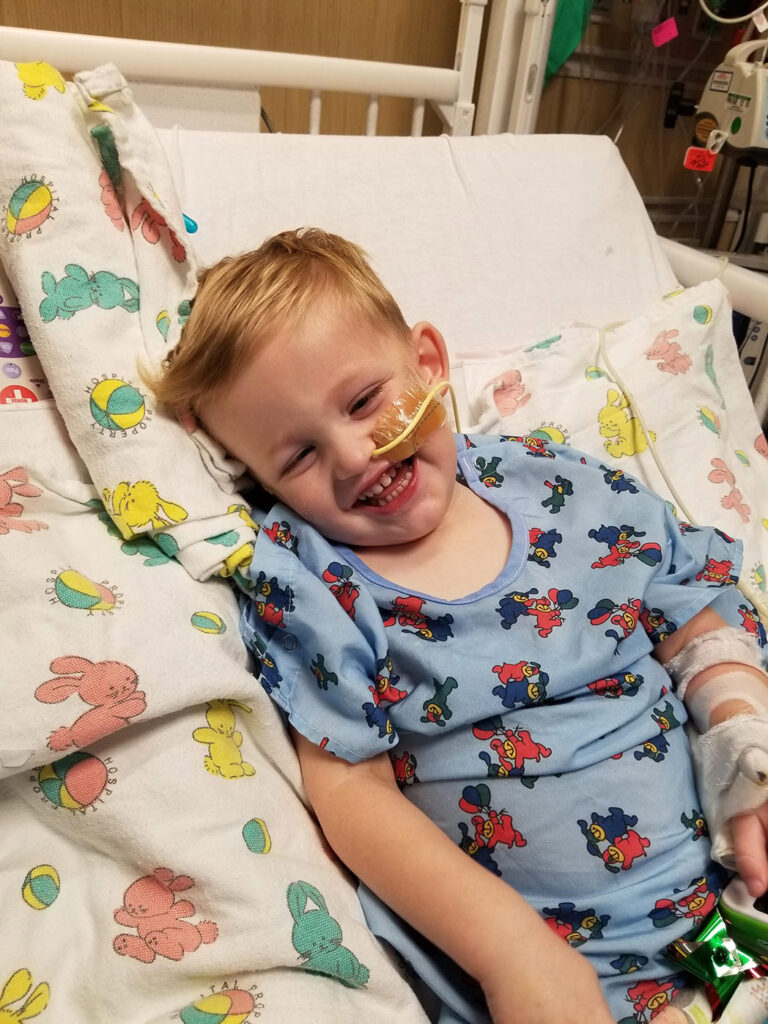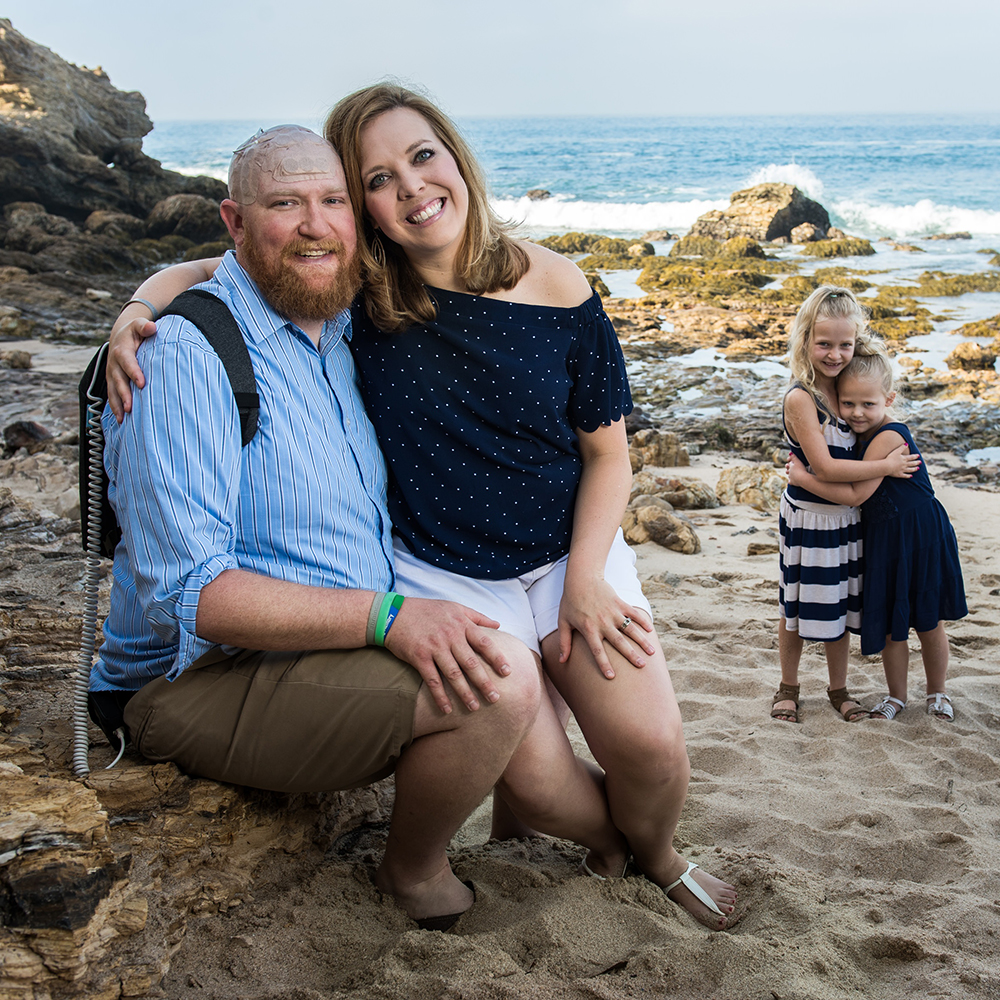Patients with brain cancer face some of the highest out-of-pocket costs for medical services, especially in the initial and end-of-life phases of care, compared to other types of cancer. In fact, during the initial phase of care, the average patient with brain cancer incurs nearly $140,000 in medical expenses related to their cancer treatment. This financial strain can add significant stress to an already difficult time.
Patients and their loved ones often don’t know how to get financial assistance as they navigate the complexities of their diagnosis and treatment. One option for support is through patient support programs offered by the pharmaceutical companies that make drugs or devices. Read on to learn about financial assistance programs available for current drugs and treatments approved for the treatment of brain tumors.
Table of Contents
Repotrectinib (Augtyro) Patient Support Programs
Dordaviprone (Modeyso) Patient Support Programs
Tovorafenib Patient Support Programs
Dabrafenib (Tafinlar) and Trametinib (Mekinist) Patient Support Programs
Optune Gio Patient Support
Vorasidenib (Voranigo) Patient Support Programs
Patient Support for Other Medications
Patient Support Programs for Fertility Preservation
Bristol Myers Squibb Access Support
In 2024, the Food and Drug Administration (FDA) granted accelerated approval to repotrectinib (Augtyro) for patients 12 years and older with solid tumors that have a mutation called NTRK gene fusions, including patients with certain brain tumors.
Bristol Myers Squibb (BMS) Access Support aims to help patients obtain their prescribed BMS medications, including Augtyro. After a patient’s health care team enrolls them in BMS Access Support, they may be able to review the patient’s insurance benefits to determine:
- Whether or not the patient’s medication is covered by their insurance
- If there are specific requirements that the patient must meet in order to get their treatment covered
- How much of their treatment costs are covered by their insurance, and what their out-of-pocket costs may be
Patients can call BMS Access Support at 800-861-0048 or schedule a call through their online form.
Augtyro Free Trial Offer
A free trial offer may be available to new patients who have been prescribed Augtyro and who have not previously received a sample or have not already filled a prescription for the medication. Patients must reside in the U.S. or a U.S. territory and be 18 or older to participate in this free trial offer. It’s a one-time offer for each patient.
BMS Access Support Co-Pay Assistance Program
Their Co-Pay Assistance Program helps patients who are commercially insured with out-of-pocket deductibles, co-pays, or co-insurance requirements. Eligible patients in the U.S. or U.S. territories may pay as little as $0 for each one-month supply, should they qualify for the co-pay card.
Augtyro Bridge Program
Eligible commercially-insured patients who are enrolled in BMS Access Support and treated with Augtyro may be able to use their Bridge Program. This program is intended for patients who are waiting for coverage determination and have been waiting for more than five calendar days. In these instances, the patient will be provided the medication at no cost until coverage is received, a prior authorization is denied and appealed, or for two months, whichever is earlier.
ChimerixCares
In 2025, the FDA granted accelerated approval to dordaviprone (Modeyso), formerly known as ONC201, as the first and only treatment for recurrent H3K27M-mutant diffuse midline glioma (DMG) — a rare, aggressive brain tumor that predominantly affects children and young adults. Modeyso is a targeted therapy that is taken as an oral capsule once weekly.
ChimerixCares provides support to patients prescribed this medication as soon as they enroll in the program and provide their consent. Their dedicated care coordinator will work with the patient’s prescriber and the specialty pharmacy to obtain insurance approval. The coordinator may determine the patient is eligible for additional ChimerixCares programs. Once coverage is confirmed, ChimerixCares will coordinate with the specialty pharmacy for home delivery and provide ongoing support.
Patients can call ChimerixCares at 844-30-CARES (22737) Monday through Friday, 8 a.m. to 8 p.m. ET with questions.
Co-Pay Savings Program
Eligible patients — U.S. residents with a domestic mailing address and commercial insurance coverage — may pay as low as $0 out of pocket per Modeyso prescription. Monthly or annual maximum limits may apply.
Patient Assistance Program
Patients who are uninsured or underinsured and meet certain financial criteria may be eligible to receive the medication at no cost. Contact ChimerixCares to learn if you qualify.
Temporary Supply Programs
Patients experiencing a delay in insurance approval or an interruption or gap in insurance coverage may be eligible for a temporary no-cost supply of Modeyso to help start or continue treatment. Contact CimerixCares for more details.
EveryDay Support From Day One
EveryDay Support From Day One (EDS) provides personalized support services to patients prescribed tovorafenib, Day One’s medication for pediatric low-grade glioma (pLGG) harboring a BRAF fusion or rearrangement, or BRAF V600 mutation. They work directly with patients and their care teams on various matters, from insurance coverage to financial assistance for eligible patients to education about their treatment.
“We know that navigating cancer treatment can be stressful, but Day One believes that accessing and affording your medication shouldn’t be,” said Janel Addicott, Director of Patient Support Services. “That’s why we created EveryDay Support From Day One as a commitment to help ensure that access is not a barrier for patients who are prescribed the medication.”
Once a health care provider has prescribed Day One’s medication tovorafenib, they can enroll in the EveryDay Support program by completing an online form or by completing the form with their health care provider. Both options are available in English and Spanish.
The form is typically processed within 24 to 48 hours, and their website offers a roadmap of what to expect from the process. Once enrolled, EveryDay Support can begin assisting with insurance coverage and identifying financial assistance programs that may be available for the patient. Then, once insurance approves coverage, EveryDay Support will coordinate with their specialty pharmacy partners who can ship the medication overnight, so patients often receive it at home the next day.
Patients and their families can call EveryDay Support directly at
855-DAY1-BIO (855-329-1246).
Support From Patient Navigators
After enrollment, one of their Patient Navigators will reach out to provide personalized support and discuss financial options available for the treatment prescribed. From that moment on, the patient and their family will have the same Patient Navigator supporting them to ensure consistency throughout their treatment.
Janel shares what families can expect: “In the welcome call, the Patient Navigator will provide a personal introduction as the dedicated point of contact for the family, provide an overview of the types of support that’s available under the program, explain the status of that specific patient’s insurance coverage or what the next steps are in the insurance process to work to obtain coverage, and outline eligibility for any relevant financial assistance programs.”
Obtaining Coverage
Patients and their families often share that one of their biggest challenges is obtaining coverage through their insurance company. The Patient Navigator through EveryDay Support can support the family through this process.
“Our Patient Navigators act as a liaison between the patient, their health care provider, the specialty pharmacy, and the insurance plan to help navigate the insurance process,” Janel shared. “We’re working directly with the health care provider to help them understand reasons for payer denials and give guidance on how to appeal that insurance denial. We have checklists and sample templates on our website that can be used for these appeals. The Patient Navigator keeps the caregiver and the family informed of what’s happening and what the next steps are, setting those expectations along the way.”
If there are treatment delays due to delays in obtaining payer coverage, the patient navigator may be able to offer medication at no cost to the patient until coverage is secured.
Administering the Medication
Sometimes, families have questions about administering the first dose or doses of the medication, and their Patient Navigator can also assist with these questions.
“If someone’s on the liquid formulation and they need to prepare their medication for their child, we offer live video calls with clinicians — either pharmacists or nurses — who can walk through the mixing of the liquid formulation and address questions in real-time,” Janel said. “We’re willing to help as many times as someone needs until they feel confident with the process. We have other resources that they could use offline themselves to walk through the steps of the process, but a lot of families feel very reassured having someone there with them to help with the mixing of the liquid formulation.”
Ongoing Patient Navigation
Even after a patient is enrolled, receiving treatment, and squared away with any eligible financial assistance, their dedicated Patient Navigator will continue to check in with the family every month to provide ongoing support.
“Personalized support and really genuine relationships with these families is what we work to develop over time,” Janel said. “We have monthly touch points with these families, so it’s not just the initiation of treatment; it is truly throughout the entire journey. We can continue to check in and see at different points what resources are needed, what challenges [they] are facing, and how we can support [them].”
Co-pay Program
Eligible patients residing in the U.S. or a U.S. territory can save on their prescription and pay as little as $0 per dispense through the EveryDay Support co-pay program (maximum benefit applies). The program is intended to help commercially insured patients with out-of-pocket obligations, including applicable co-payments, co-insurance, and deductibles for their medicine.
Example: “A family experienced a job change and therefore new insurance, so that family became responsible for meeting their deductible not once but twice last year,” Janel shared. “A lot of people may not be aware that right when you start a new job, you now have this financial responsibility that maybe wasn’t expected. They were commercially insured and were able to use the co-pay card and kept their out-of-pocket expense to $0. That relieved a lot of concern about being able to continue to afford their medication despite the change in their insurance and job.”
Other Financial Support
QuickStart and Coverage Interruption
The QuickStart Program is intended for new patients who have not yet started their medication but are experiencing a delay with their initial insurance coverage determination. The Coverage Interruption Program is for patients who are already taking the medication but are now experiencing an interruption in their insurance coverage.
“Both of these programs may provide temporary access to medication to help start or continue their treatment,” Janel explained. “Our goal at EveryDay Support is to help appropriate patients start on treatment and then help ensure continuity of treatment as long as clinically appropriate.”
What are some examples of coverage interruption?
Coverage interruption can happen when a voluntary or involuntary job change results in different insurance coverage. It can also happen when a patient’s prior authorization expires.
“Different insurance plans will establish the period of time that a prior authorization is valid,” Janel said. “If there happens to be a delay in the reapproval or reauthorization process, EveryDay Support may be able to help.”
Patient Assistance Program
Eligible residents of the U.S. or U.S. Territories who either don’t have health insurance or have limited health insurance coverage for this particular medication may qualify for free long-term medication through this program. After enrollment, the Patient Navigator will first pursue insurance coverage. If that is unsuccessful and the patient meets certain income requirements, they may be able to get free medication through this program.
Novartis Oncology Patient Support
The drug combination dabrafenib (Tafinlar) and trametinib (Mekinist) was approved by the FDA in 2023 for pediatric patients 1 year of age and older with low-grade glioma (LGG, grade 1 or 2) that have a mutation called BRAF V600E. The approval marked the first FDA approval of a treatment option for patients of this age group with LGG that have this mutation, including gangliogliomas, pleomorphic xanthoastrocytoma (PXA), as well as certain other astrocytomas and oligodendrogliomas.
Novartis Oncology Universal Co-Pay Program
Novartis Oncology, which makes this drug combination, offers a co-pay assistance program for eligible patients with private insurance. This program helps to reduce the out-of-pocket expenses for those who are undergoing treatment with specific medications.
According to their website at the time of this publication, “the Novartis Oncology Universal Co-pay Program includes the co-pay card, payment card, or rebate with a combined annual limit of $15,000. The patient is responsible for any costs once the limit is reached in a calendar year.”
Patients can enroll in the co-pay program by calling 877-577-7756 or visiting copay.novartisoncology.com and clicking on the respective medication from the dropdown menu.
Novartis Patient Assistance Foundation
For patients who do not have private insurance, the Novartis Patient Assistance Foundation provides Novartis medications free of cost to eligible patients. To be eligible, patients need to:
- Reside in the U.S. or a U.S. territory
- Be treated by a licensed U.S. health care provider on an outpatient basis
- Meet income guidelines
In addition to reviewing their FAQs page, patients and caregivers can call the nonprofit at 800-277-2254 with questions.
Novocure Patient Support
The FDA approved Optune Gio in 2011 for recurrent glioblastoma patients and in 2015 for newly diagnosed glioblastoma patients. Optune Gio is a portable battery or power-supply operated device that produces changing electrical fields, called tumor treatment fields (“TTFields”), intended to disrupt the growth of glioblastoma tumor cells. Patients place electrodes directly on their scalp and wear a backpack containing the device’s battery.
For patients prescribed Optune Gio (often called Optune or Tumor Treating Fields), the cost may vary for each person based on income, insurance, and other factors. Their MyNovocure program offers 24/7 personalized support that can help guide patients through the insurance coverage process or help answer financial questions about Optune Gio and identify resources to lower costs.
According to their website, at the time of publication, they “will work directly with your insurance company to assist with minimizing your out-of-pocket costs.”
Patients and care partners can contact MyNovocure directly by calling 855-281-9301 (toll-free) or emailing support@mynovocure.com.
ServierONE Program
In 2024, the FDA approved vorasidenib (Voranigo) for the treatment of adult and pediatric patients 12 years of age and older with grade 2 astrocytoma or oligodendroglioma with an IDH1 or IDH2 mutation, following surgery, including biopsy, sub-total resection, or gross total resection. This marked the first FDA approval of a systemic therapy for patients with grade 2 astrocytoma or oligodendroglioma with an IDH1 or IDH2 mutation. (NBTS played multiple roles in advancing this new treatment, including funding research that propelled it from a phase II to a phase III clinical trial.)
The ServierONE program helps connect patients with brain tumors who are prescribed vorasidenib tablets to the right support programs and services that can help with the cost of the medication. Their program provides several forms of patient assistance.
“We have a quick patient onboarding starter kit for every patient that gets diagnosed,” said Naveed Masood, Head of US Launch Readiness and Patient Services at Servier. “We provide patients with resources and tools that they need to go through their experience, like disease state information and adherence information.”
Patients and caregivers with questions can call 800-813-5905 between 8 a.m. and 8 p.m. ET, Monday through Friday.
This program provides several forms of assistance, including:
- Support with insurance coverage and reimbursement
- Financial assistance for paying for Voranigo tablets
- Prescription fulfillment through a network of specialty pharmacies and distributors
- Resources to help navigate insurance processes
- A one-on-one Patient Experience Manager to guide you through the process
ServierONE is dedicated to helping patients and their caregivers navigate the complexities of treatment and financial assistance. For more information, reach out to ServierONE’s support team directly.
Co-pay Program
Eligible U.S. and Puerto Rico residents with commercial prescription insurance can enroll in the ServierONE co-pay program to reduce the out-of-pocket costs to no more than $25 per prescription should their co-pay exceed that amount. There are no income restrictions. Patients and caregivers can apply at ServierONE-copay.com.
Example: “My husband just started a new med (vorasidenib) in December that was FDA approved in August,” said Amanda P. “In January, we were told that we would have a $3,000 co-pay. I had been on their website and saw that they had a co-pay assistance program that was eligible for anybody for $25 per prescription. I was able to tell the pharmacist that there was co-pay assistance, and they got him enrolled within an hour.”
Bridge Program
The Bridge Program offers a one-time, one-month supply of medication to qualified patients experiencing a short-term lapse in coverage while their insurance issues are being resolved. Patients may be eligible if they reside in the U.S. or Puerto Rico, are commercially insured, and have completed the enrollment form.
QuickStart Program
The QuickStart Program is intended for new patients who have been prescribed vorasidenib but have been waiting to hear back from their insurer, whether it’s an appeal or an initial submission, for more than five business days. Eligible new patients will receive one 30-day supply as prescribed so they can start treatment, and they may receive one 30-day refill for a total of 60 days, per Servier approval.
Patients may be eligible if they reside in the U.S. or Puerto Rico, are commercially or government-insured, and have completed the enrollment form.
Patient Assistance Program
The Patient Assistance Program offers free medication for U.S. or Puerto Rico patients who are underinsured or uninsured and meet certain qualification requirements. Patients can apply if they have commercial or state/government insurance and their household gross annual income does not exceed 600% of the U.S. federal poverty level.
Patients who don’t meet these criteria may be eligible for other forms of assistance, so they are encouraged to contact ServierOne.
Example #1: A patient might get a prescription for Voranigo and have it run through their payer for prior authorization. Patients can apply to the Patient Assistance Program if their payer doesn’t cover it or if they do, but it’s a high co-pay.
Example #2: A patient in his 30s lost his employment shortly after surgery due to corporate restructuring. The job loss meant he no longer had insurance. He was able to qualify for their Patient Assistance Program. A few months later, he found a new job and secured insurance coverage. ServierOne helped him bridge the gap so he had access to the medication right away.
Patient Support Programs for Other Medications
In addition to drugs or devices needed for the treatment of a brain tumor, patients may also find themselves taking prescription medication to address symptoms and treatment side effects.
For example, anti-seizure medications and steroids are commonly prescribed as part of brain tumor care. These medications can also come with high costs, but many pharmaceutical companies offer patient assistance programs to help with affordability.
“Seizure medication is expensive,” said Kim M., whose husband was diagnosed with oligodendroglioma. “The second medication we were put on is very expensive. It was $925 a month, but there’s co-pay assistance. If you know to go for that, it’s $20 a month. Nobody advertises that if you go to this website, you can, regardless of income, qualify for this, so education about those kinds of things is needed.”
Research whether the pharmaceutical company that makes the patient’s medication(s) offers a co-pay assistance or patient support program. Many organizations have dedicated helplines and online resources to help patients access financial relief.
“We received a $6,000 bill for one month of seizure medications,” said Katie M., whose husband was diagnosed with glioblastoma. “I started to ask questions to see how to not pay for this out-of-pocket expense right away. I talked to the social worker in the epilepsy department at our local hospital. We’re actually on a payment plan through the drug company now.”
Patient Support Programs for Fertility Preservation
Fertility preservation can be an important but costly consideration for patients undergoing treatment. Certain treatments, including radiation and chemotherapy, can affect fertility, making it essential for patients to explore options before starting treatment. Several pharmaceutical companies and organizations offer patient assistance programs to help with the costs of fertility preservation, including discounted medications, storage, and procedures.
Potential options for fertility preservation include ReUnite Assist and EMD Serono Fertility’s Compassionate Care, while ReproTech’s Verna’s Purse program offers discounted storage for individuals facing fertility-threatening treatment.
“ReproTech is somewhat nationwide, but some states don’t have any options available,” said Megan Scherer, co-founder and executive director of Worth the Wait. “I always tell people, especially guys who need to bank, to see if there’s a clinic in their area. Even if it’s two hours away, you might want to go bank your sperm there if you only have to pay $100 a year for storage compared to, let’s say, $800. They also have a program where you can bank wherever you want, get your eggs frozen wherever you want, and then pay to have them shipped to one of their storage facilities. If you’re going to have it frozen for three or four years, it’s probably worth it for you to get it shipped out of state [until you’re ready to move forward after treatment].”
Last Updated: October 30, 2025









